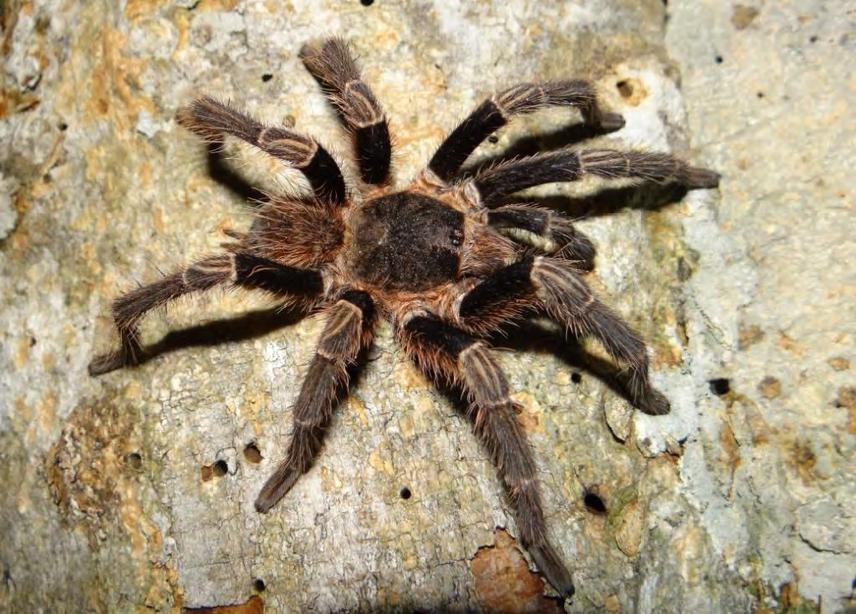Nelson Ferretti
The aim of the project is to estimate the diversity and conservation status of tarantulas at the Atlantic Forest in Misiones province, Argentina. Also, we will provide workshops, environmental education and illustrated catalogues.
In spite of its highly fragmented condition, the Atlantic Forest remains one of Earth’s most biologically diverse ecosystems, containing about 7% of the world’s species. In Argentina, the native forest is being converted into large-scale pine plantations or pasture for cattle ranching or to small scale tobacco.

Adult male of Vitalius paranaensis a common tarantula at the Atlantic Forest
Tarantulas are sedentary, and some species live from 15 to 30 years and require from 5 to 6 years reaching maturity. Due to their size, long life-span, low vagility and their increased importance as pets (being very attractive as ornamental pets for hobbyist), these spiders are probably the invertebrate’s group with main conservation risks in Argentina. Moreover, in Argentina, many of these species (belonging to the Acanthoscurria, Eupalaestrus, Vitalius, Grammostola, Homoeomma.
This project aims to estimate the diversity and conservation status of tarantulas at the Atlantic Forest in Misiones province, Argentina. This region has been identified as a biodiversity hotspot and is suffering an extreme degree of forest fragmentation and degradation. Tarantulas are the largest and longest lived spiders of the world with natural populations threatened by habitat disturbances and captures for pet commerce. The proposal will contribute to the knowledge of the diversity, distribution, biology, habitat requirements and conservation status of tarantulas, by seasonal samplings. Also, this project will promote informative about tarantulas by workshops, environmental education and illustrated catalogues.